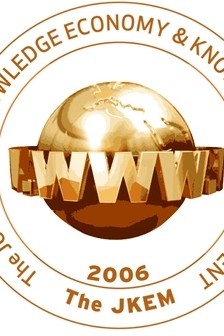Adoption a Proper Tool For E-Readiness Assessment in Developing Countries (Case Studies: İran, Turkey and Malaysia)
Digital integration, with its Information Technology (IT) infrastructure, and its applications of e-government, e-commerce, e-learning, and other e-applications, is becoming of increasing importance, as a vital tool for development, both nationally and internationally. During the last decade, many leaders in government, business, and social organizations around the globe have considered how best to harness the power of IT for development. E-readiness assessments are meant to guide development efforts by providing some suitable tools for comparison and gauging progress. Several e-readiness initiatives have been launched to help countries in this area, and numerous e-readiness assessment tools have been created and used by different groups, each looking at various aspects of IT, society, and the economy. This paper is concerned with the comparison of the e-readiness in three Islamic countries including Turkey, Iran, Malaysia. In the first section, the e-readiness definition, background and importance will be reviewed. In the next section the focus will be on some of the existing e-readiness tools such as, the MI, the EIU, the UNCTAD, the TAI, the GDI, the NRI and the KAM. At the end of this section, a comparison among the mentioned tools will be presented. In the third section, the suitable tool for comparing the e-readiness for these three countries will be selected and then through the selected criteria, the comparison for the e-readiness of these countries will be done. At the end of the paper, some suggestions and guidelines will be presented to promote the informational development of these countries.
Anahtar Kelimeler:
Digital İntegration, Technology, Development
Adoption a Proper Tool For E-Readiness Assessment in Developing Countries (Case Studies: İran, Turkey and Malaysia)
Digital integration, with its Information Technology (IT) infrastructure, and its applications of e-government, e-commerce, e-learning, and other e-applications, is becoming of increasing importance, as a vital tool for development, both nationally and internationally. During the last decade, many leaders in government, business, and social organizations around the globe have considered how best to harness the power of IT for development. E-readiness assessments are meant to guide development efforts by providing some suitable tools for comparison and gauging progress. Several e-readiness initiatives have been launched to help countries in this area, and numerous e-readiness assessment tools have been created and used by different groups, each looking at various aspects of IT, society, and the economy. This paper is concerned with the comparison of the e-readiness in three Islamic countries including Turkey, Iran, Malaysia. In the first section, the e-readiness definition, background and importance will be reviewed. In the next section the focus will be on some of the existing e-readiness tools such as, the MI, the EIU, the UNCTAD, the TAI, the GDI, the NRI and the KAM. At the end of this section, a comparison among the mentioned tools will be presented. In the third section, the suitable tool for comparing the e-readiness for these three countries will be selected and then through the selected criteria, the comparison for the e-readiness of these countries will be done. At the end of the paper, some suggestions and guidelines will be presented to promote the informational development of these countries.
Keywords:
Digital İntegration, Technology, Development,
- Yayın Aralığı: Yılda 2 Sayı
- Başlangıç: 2006
- Yayıncı: İbrahim Güran YUMUŞAK
